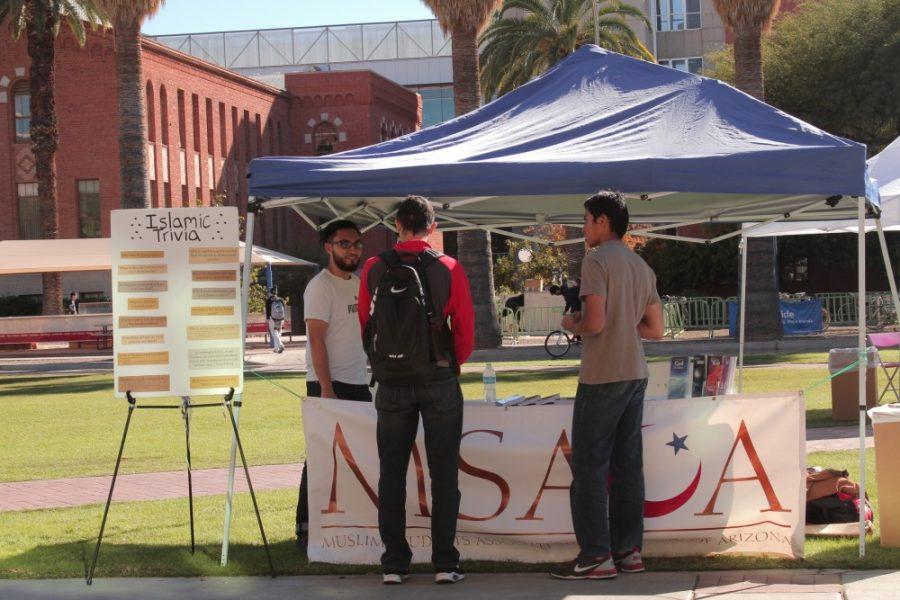The Muslim Student Association took to the UA Mall on Nov. 19 to answer questions about the Islamic faith.
Omar Phanivong, MSA president and a physiology sophomore, said the club was also on the Mall last year, and the revival of their presence is more timely than ever.
Recent attacks of terror in Beirut and Paris claimed by the radical Islamic State have given the MSA even more reason to clear up any misunderstandings people might have about Muslims.
“Especially with the things going on in the world right now, I feel like this is something we need to do,” Phanivong said.
The MSA attracted visitors with a trivia board outside its tent. Curious people came to test their knowledge, and also compared the Islamic faith to their own.
For Phanivong, it was a positive experience.
“Most of the people come here with an open-mind,” Phanivong said.
When speaking about Islamic radicals, Phanivong said he rarely receives questions about the Islamic State, but when it does come up, he explains that the acts of the militant group are not condoned by Islam.
The MSA’s stance on the Islamic State is not uncommon, and is shared by many Muslims around the world.
In a 2015 study conducted by the Pew Research Center, 11 countries with significant Muslim populations, including Lebanon, Israel and Jordan, were surveyed about their views on the Islamic State and given the option of responding with: unfavorable, favorable or I don’t know.
The Islamic State did not receive a favorable rating of more than 14 percent, and 10 of the countries surveyed gave the militant group an unfavorable rating of 60 percent or higher.
A separate study by the Pew Research Center, predicts that by the year 2050, Muslims will make up 29.7 percent of the global population, almost the same share of the population made up by Christians in 2010.
An increase in the Islamic population is expected to grow globally due to migration. Currently, the U.S. government is deciding the amount of Syrian refugees that will be placed in the country, and what screening processes they will be put through.
With the majority of Muslims in disapproval of the actions taken by Islamic radicals, they continue to combat stereotypes of their faith.
Phanivong says that the stereotyping can be especially harsh for those who wear a beard or hijab. One goal of the MSA is to break the negative associations with Islam.
“That’s why we’re here. We’re here to say that this is not part of Islam. Islam doesn’t teach you to go and kill innocent people,” Phanviong said. “Islam doesn’t teach you to murder.”
Follow Michelle Jaquette on Twitter.









